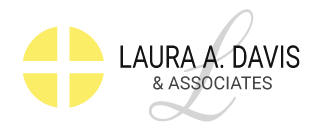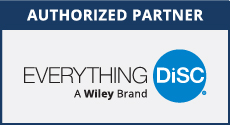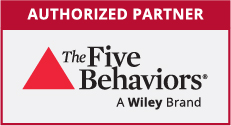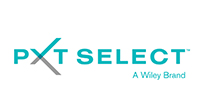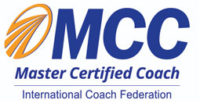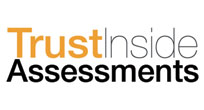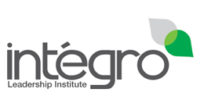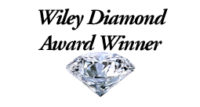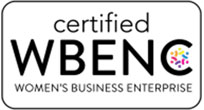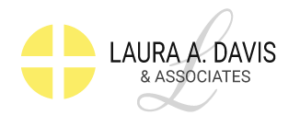People Whispering Tip:
As is appropriate for the month of February, this month’s theme centers on the importance of leading with love and positive influence. It is so important for all of us to realize that leadership isn’t about one’s position alone. It’s about one’s influence and ability to establish, build, and maintain a positive emotional bank account with others with sincerity.
By influence, I mean the ability to get work done with and through people over whom you have no direct control or positional authority. Recently, I have conducted/facilitated training sessions with groups of “high potentials” for a well-respected organization in Atlanta where I am based. These participants have been identified as the “best and the brightest” and are supposedly on the fast track to success. While many were bright and intelligent, I was amused at how “they don’t know what they don’t know.” I recall being in that position myself early in my career and like many of us, wish I knew then what I know now.
Specifically, I wish I knew that business is more about relationships and human connections than it is about the latest management theories or financial analyses. I wish I knew then how important it is to manage to the individual to help them bring out their own unique gifts and strengths while at the same time, broadening their repertoire so they don’t overuse those same strengths in a situation where different skills are needed. As I wrote in my award-winning article, “Leading With Love,” (link to website published Jan. 2009) people want to feel a leader’s heart and know that you care about what you do and about them.
Out of all of the ingredients for successful relationships, genuine caring is the hardest of all to coach. It is something that comes from deep inside the heart and soul and transcends logic and intellect. I encourage you to read the article in its entirety and in trusting that you will, I won’t repeat the main points here. I will sum up the essence of it though by quoting the Chinese philosopher Lao-tzu’s saying “Fail to honor people, and they fail to honor you.”
And this brings me back to reflecting on my recent experiences with the groups of “high-potentials” I mentioned earlier. To provide some context, the organization in question is a large, highly respected, multinational company with an engineering focus where intellect and an objective mindset is often rewarded more than a broad-based people-oriented perspective.
In their defense, this was a group of young, energetic, bright, and self-motivated individuals. Already some were cynical having fought resistance from leaders well-vested in the status quo. They can’t be completely faulted for not understanding the value of business protocol and respecting those with more experience as in many cases, they haven’t been taught these skills, attitudes, and beliefs. And they do bring a fresh eye and enthusiasm to the old tired ways of doing things. That said, one has to know how to influence in a way that builds bridges and makes people right rather than wrong.
In the training, we do a simulation and negotiation practice which mirrors similar dynamics to every day work in most large corporations. Specifically, tensions are created by a lack of clarity about the vision, mission, and goals and artificial competition is set up by “geography” and putting people in “teams” which often end up competing internally much like a headquarters and field dynamic would occur in a company. I was struck by the lack of realization that win-lose thinking didn’t serve the objectives at hand. It was striking to me how much this competitive spirit is scripted into our society without even considering there might be a better way. Blaming others and hoarding information to maintain “power over” rather than “power with” also showed up under stress.
While solving these issues could be the subject of an entire book, I believe the crux of the problem is a lack of understanding that technical expertise is not enough. While we may build our reputations early in our careers on competence, we remain successful based upon our ability to work with and through people at all levels. Our emotional and spiritual IQ ultimately trumps brilliance and/or technical competence.
Obviously, relationships will never take the place of technical competence. Rather, relationships and technical expertise are a “both and” and support and complement one another. In future issues of this Ezine, I will continue to flesh out what you can do to influence without authority whether that is through making an individual contribution, building one-on-one relationships, and/or working effectively as a part of a team. I hope you’ll stay tuned!
If you’d like more information on our training and coaching services particularly in the area of “influencing without authority,” please call us at (404) 327-6330 or email me at Laura@lauraadavis.com.
DiSC Assessment Application:
Effective influencing behavior comes from a centered, calm place without stress and push energy.
The Coping & Stress Profile (link to in store) is an assessment in my suite of offerings that provides people with the valuable feedback on coping with stress in both their personal and work lives. I mentioned how we all tend to overuse our strengths under stress and how this showed up in the simulations I recently facilitated with my “high potential” groups. This profile identifies how “stress” in one area of life affects other areas and examines how coping resources in one area can be used to decrease stress in another area.
The profile covers 4 coping resources which are:
Problem-solving (or Solution-Finding!): dealing with challenges and making changes to resolve them.
Communication: sharing thoughts and feelings with others.
Closeness: connecting with others.
Flexibility: Responding to change with willingness and openness.
The Coping & Stress Profile (link to in store) helps people in organizations:
- Discover “stress” issues in each life area and capitalize on coping strengths to manage stress.
- Learn to minimize or eliminate common daily stressors.
- Identify areas for coping through skills improvement.
- Develop flexibility in responding to change.
- Communicate more effectively to improve problem-solving.
- Build mutually supportive relationships.
For more information on how to use Coping & Stress in your organization, please call us at (404) 327-6330 or email me at Laura@lauraadavis.com. We are here to serve you!
Transformational Coaching Tips:
I’ve written many times of the need to “people-read” the style of the other person in order to cross the bridge into their world, speak in their language, and gain their trust in order to partner with them. Below are some additional tips to cultivate strong one-on-one relationships in today’s workplace. Strong one to one interpersonal relationships are one of the keys to effective influence without authority.
- Have lunch with one or more coworkers at least once a week.
- Smile at people as you pass them in the hall or wherever you encounter one another at work.
- Open up to people by sharing and disclosing some personal information with which you are comfortable.
- Ask for input from knowledgeable coworkers about a project on which you are working.
- Follow up on information that has been previously shared with you, particularly personal information if relevant.
- See beyond the task to the human being who is performing it and remember to manage to the individual using your knowledge of DiSC style.
- Read Love is the Killer App by Tim Sanders – www.twitter.com/sanderssays.
